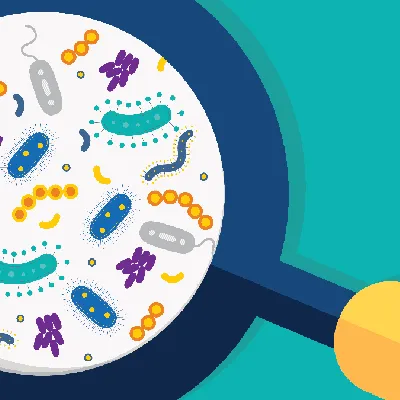The human body is a complex ecosystem teeming with life, much of which is invisible to the naked eye. In recent years, scientists have begun to unravel the mysteries of this hidden world, known as the microbiome. Comprised of trillions of microorganisms, including bacteria, fungi, viruses, and archaea, the microbiome plays a crucial role in our health and well-being. In this blog, we'll explore the fascinating world of human microbes, from their role in digestion and immunity to their potential impact on disease and mental health.
What is the Microbiome?
The microbiome refers to the collection of microorganisms
that inhabit a particular environment, such as the human body. In the case of
the human microbiome, these microorganisms colonize various parts of the body,
including the skin, mouth, gut, and reproductive tract. While bacteria are the
most abundant microbes in the human microbiome, other organisms, such as fungi
and viruses, also play important roles.
The Gut Microbiome: A Key Player in Health
One of the most well-studied areas of the human microbiome is
the gut, where trillions of bacteria reside. These bacteria play a vital role
in digestion, breaking down food and extracting nutrients that our bodies need
to function properly. Additionally, the gut microbiome plays a crucial role in
regulating the immune system, protecting against pathogens, and maintaining a
healthy balance of bacteria.
The Skin Microbiome: Our First Line of Defense
The skin is home to a diverse array of microbes that form the
skin microbiome. These microorganisms help protect against pathogens, regulate
skin pH, and maintain moisture levels. Disruptions to the skin microbiome, such
as through excessive washing or the use of harsh chemicals, can lead to skin
conditions such as acne, eczema, and dermatitis.
The Oral Microbiome: More Than Just Teeth
The mouth is another hotspot for microbial activity, hosting
a wide variety of bacteria, fungi, and viruses. The oral microbiome plays a
crucial role in oral health, helping to break down food particles, prevent
tooth decay, and protect against oral infections. However, imbalances in the
oral microbiome can lead to conditions such as gum disease and tooth decay.
The Role of the Microbiome in Health and Disease
Research has increasingly linked imbalances in the microbiome
to a wide range of health conditions, including obesity, diabetes, inflammatory
bowel disease, and even mental health disorders such as depression and anxiety.
While much is still unknown about the complex interactions between the
microbiome and human health, scientists are beginning to unravel the mechanisms
underlying these associations.
Maintaining a Healthy Microbiome
Maintaining a healthy microbiome is essential for overall
health and well-being. While factors such as genetics and early-life exposures
play a role in shaping the microbiome, lifestyle factors such as diet,
exercise, and stress management also play a crucial role. Eating a diverse diet
rich in fiber, fermented foods, and prebiotics can help nourish beneficial
bacteria in the gut, while avoiding excessive antibiotic use and maintaining
good hygiene practices can help preserve the balance of microbes throughout the
body.
Conclusion
The human microbiome is a complex and dynamic ecosystem that
plays a crucial role in our health and well-being. From digestion and immunity
to skin health and reproductive function, the microbes that inhabit our bodies
have a profound impact on nearly every aspect of our lives. As research into
the microbiome continues to advance, we are gaining a deeper understanding of
its importance and potential implications for human health and disease.



0 Comments